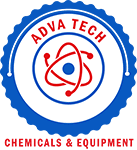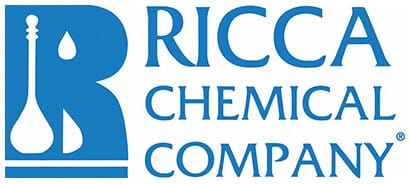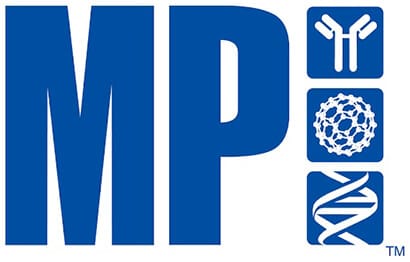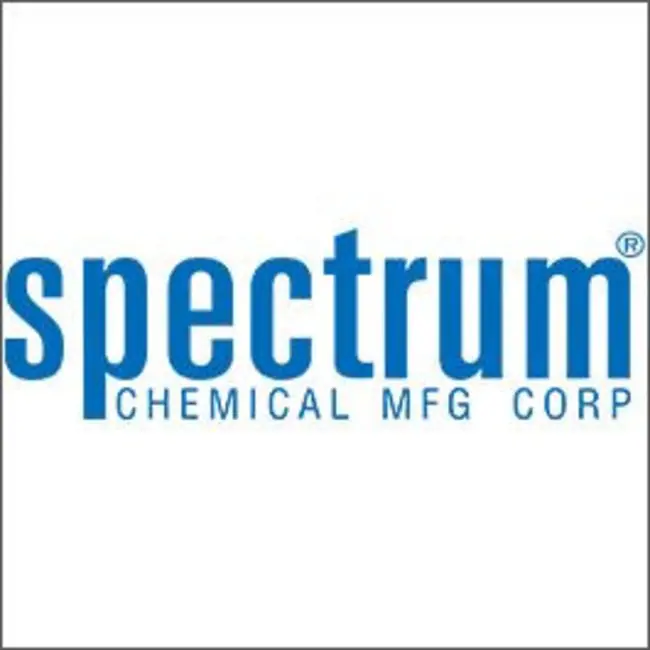GenScript Biotech
Showing 301–350 of 2554 results
-
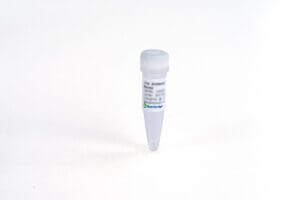
BNP (60C5), mAb, Mouse
$196.65 Add to cart View Product DetailsBNP and NT-proBNP are separated from precursor molecule proBNP via proteolytic processing. The BNP and NT-proBNP level in blood are proportional to the severity of cardiac dysfunction. It can be used for diagnosis of congestive heart failure (CHF).
-

BNP (60C5), mAb, Mouse
$1,966.50 Add to cart View Product DetailsBNP and NT-proBNP are separated from precursor molecule proBNP via proteolytic processing. The BNP and NT-proBNP level in blood are proportional to the severity of cardiac dysfunction. It can be used for diagnosis of congestive heart failure (CHF).
-

BNP (60C5), mAb, Mouse
$16,732.50 Add to cart View Product DetailsBNP and NT-proBNP are separated from precursor molecule proBNP via proteolytic processing. The BNP and NT-proBNP level in blood are proportional to the severity of cardiac dysfunction. It can be used for diagnosis of congestive heart failure (CHF).
-
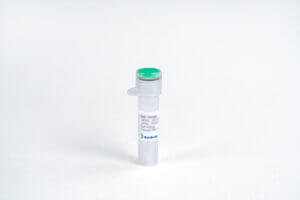
BNP, Human
$439.88 Add to cart View Product DetailsNatriuretic Peptide Precursor B acts as a cardiac hormone with a variety of biological actions including natriuresis, diuresis, vasorelaxation, and inhibition of renin and aldosterone secretion. It is thought to play a key role in cardiovascular homeostasis. Helps restore the body’s salt and water balance. Improves heart function.
-
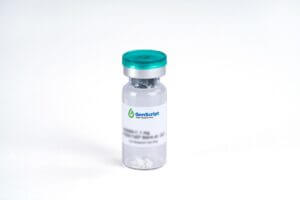
BNP, Human
$3,458.63 Add to cart View Product DetailsNatriuretic Peptide Precursor B acts as a cardiac hormone with a variety of biological actions including natriuresis, diuresis, vasorelaxation, and inhibition of renin and aldosterone secretion. It is thought to play a key role in cardiovascular homeostasis. Helps restore the body’s salt and water balance. Improves heart function.
-
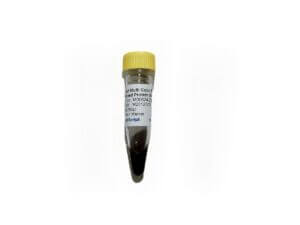
Broad Multi Color Pre-Stained Protein Standard
$280.31 Add to cart View Product DetailsBroad Multi Color Pre-Stained Protein Standard is a special-designed protein standard. The standard is a mixture of ten highly purified prestained proteins ranging from 5 kDa to 270 kDa, covalently coupled with four different chromophores. The 30 kDa band is red, 50 kDa band is green, 270 kDa band is orange, and other bands are blue. Broad Multi Color Pre-Stained Protein Standard is designed for observing protein separation during SDS-PAGE, verifying western transfer efficiency on membranes, and approximating the size of proteins.
-

Broad Multi Color Pre-Stained Protein Standard
$69.00 Add to cart View Product DetailsBroad Multi Color Pre-Stained Protein Standard is a special-designed protein standard. The standard is a mixture of ten highly purified prestained proteins ranging from 5 kDa to 270 kDa, covalently coupled with four different chromophores. The 30 kDa band is red, 50 kDa band is green, 270 kDa band is orange, and other bands are blue. Broad Multi Color Pre-Stained Protein Standard is designed for observing protein separation during SDS-PAGE, verifying western transfer efficiency on membranes, and approximating the size of proteins.
-

BSA ELISA Kit, 2G
$429.53 Add to cart View Product DetailsGenScript BSA ELISA Kit, 2G (Cat. No. L00976) is a Sandwich ELISA Kit that is designed for quantitative measurement of bovine serum albumin (BSA) in testing samples. These outstanding features make it a great solution for routine BSA impurity detection, quality control and lot release, as well as purification process optimization.
-

BTLA/CD272, His, Human
$241.50 Add to cart View Product DetailsB- and T-Lymphocyte Attenuator (BTLA) is a single-pass type I membrane protein containing 1 Ig-like V-type (immunoglobulin-like) domain. BTLA expression is induced during activation of T cells, and BTLA remains expressed on Th1 cells but not Th2 cells. Like PD1 and CTLA4, BTLA interacts with a B7 homolog, B7H4. However, unlike PD-1 and CTLA-4, BTLA displays T-Cell inhibition via interaction with tumor necrosis family receptors (TNF-R), not just the B7 family of cell surface receptors. BTLA is a lymphocyte inhibitory receptor that inhibits lymphocytes during immune response. BTLA also is a ligand for tumor necrosis factor (receptor) superfamily, member 14 (TNFRSF14), also known as herpes virus entry mediator (HVEM). BTLAHVEM complexes negatively regulate T-cell immune responses.
-
![c-Myc-tag Antibody [HRP], pAb, Rabbit](https://advatechgroup.com/wp-content/uploads/2025/06/antibody01-300x200.jpg.pagespeed.ce.lJjhncTAx7.jpg)
c-Myc-tag Antibody [HRP], pAb, Rabbit
$87.98 Add to cart View Product DetailsThis Antibody recognizes c-Myc tagged fusion proteins.
-
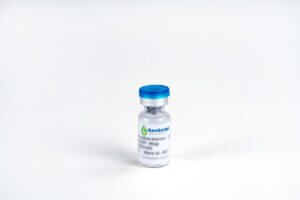
c-Myc-tag Antibody, pAb, Rabbit
$87.98 Add to cart View Product DetailsThis Antibody recognizes c-Myc tagged fusion proteins.
-

CA125 (C33), mAb, Mouse
$101.78 Add to cart View Product DetailsCA125, known as cancer antigen 125, carcinoma antigen 125, and carbohydrate antigen 125, is a member of the mucin family glycoproteins. It is involved in boosting tumorigenesis and tumor proliferation and is considered as a useful biomarker for the diagnosis of ovarian cancer.
-

CA125 (C33), mAb, Mouse
$1,017.75 Add to cart View Product DetailsCA125, known as cancer antigen 125, carcinoma antigen 125, and carbohydrate antigen 125, is a member of the mucin family glycoproteins. It is involved in boosting tumorigenesis and tumor proliferation and is considered as a useful biomarker for the diagnosis of ovarian cancer.
-

CA125 (C33), mAb, Mouse
$8,625.00 Add to cart View Product DetailsCA125, known as cancer antigen 125, carcinoma antigen 125, and carbohydrate antigen 125, is a member of the mucin family glycoproteins. It is involved in boosting tumorigenesis and tumor proliferation and is considered as a useful biomarker for the diagnosis of ovarian cancer.
-

CA125 (D34), mAb, Mouse
$101.78 Add to cart View Product DetailsCA125, known as cancer antigen 125, carcinoma antigen 125, and carbohydrate antigen 125, is a member of the mucin family glycoproteins. It is involved in boosting tumorigenesis and tumor proliferation and is considered as a useful biomarker for the diagnosis of ovarian cancer.
-

CA125 (D34), mAb, Mouse
$1,017.75 Add to cart View Product DetailsCA125, known as cancer antigen 125, carcinoma antigen 125, and carbohydrate antigen 125, is a member of the mucin family glycoproteins. It is involved in boosting tumorigenesis and tumor proliferation and is considered as a useful biomarker for the diagnosis of ovarian cancer.
-

CA125 (D34), mAb, Mouse
$8,625.00 Add to cart View Product DetailsCA125, known as cancer antigen 125, carcinoma antigen 125, and carbohydrate antigen 125, is a member of the mucin family glycoproteins. It is involved in boosting tumorigenesis and tumor proliferation and is considered as a useful biomarker for the diagnosis of ovarian cancer.
-

CA125/MUC16, His & Avi, Human
$301.88 Add to cart View Product DetailsMUC16, also known as the CA125 antigen, is a mucin protein that may be found in type I transmembrane or secreted forms that are used monitor the progress of epithelial ovarian cancer therapy. Thought to provide a protective, lubricating barrier against particles and infectious agents at mucosal surfaces. Binding to MSLN mediates heterotypic cell adhesion. This may contribute to the metastasis of ovarian cancer to the peritoneum by initiating cell attachment to the mesothelial epithelium via binding to MSLN.
-

CA15-3 (15D3HC)
$319.13 Add to cart View Product DetailsCA15-3
(Carcinoma antigen 15-3) is also known as MUC 1 antigen. It is a
membrane-anchored, mucin-type glycoprotein present in malignant cells. It is
used as tumor marker to monitor breast cancer treatment and disease recurrence. -

CA15-3 (15D3HC)
$3,191.25 Add to cart View Product DetailsCA15-3
(Carcinoma antigen 15-3) is also known as MUC 1 antigen. It is a
membrane-anchored, mucin-type glycoprotein present in malignant cells. It is
used as tumor marker to monitor breast cancer treatment and disease recurrence. -
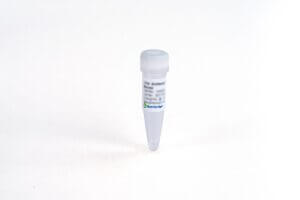
CA15-3 (15D3HC)
$27,152.36 Add to cart View Product DetailsCA15-3
(Carcinoma antigen 15-3) is also known as MUC 1 antigen. It is a
membrane-anchored, mucin-type glycoprotein present in malignant cells. It is
used as tumor marker to monitor breast cancer treatment and disease recurrence. -

CA15-3 (25E3), mAb, Mouse
$319.13 Add to cart View Product DetailsCA15-3
(Carcinoma antigen 15-3) is also known as MUC 1 antigen. It is a
membrane-anchored, mucin-type glycoprotein present in malignant cells. It is
used as tumor marker to monitor breast cancer treatment and disease recurrence. -

CA15-3 (25E3), mAb, Mouse
$3,191.25 Add to cart View Product DetailsCA15-3
(Carcinoma antigen 15-3) is also known as MUC 1 antigen. It is a
membrane-anchored, mucin-type glycoprotein present in malignant cells. It is
used as tumor marker to monitor breast cancer treatment and disease recurrence. -
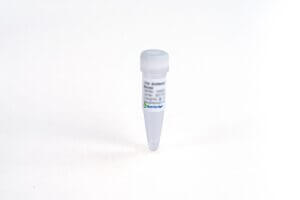
CA15-3 (25E3), mAb, Mouse
$27,152.36 Add to cart View Product DetailsCA15-3
(Carcinoma antigen 15-3) is also known as MUC 1 antigen. It is a
membrane-anchored, mucin-type glycoprotein present in malignant cells. It is
used as tumor marker to monitor breast cancer treatment and disease recurrence. -

CA15-3 Antibody(A5D8), mAb, Mouse
$319.13 Add to cart View Product DetailsCA15-3 (Carcinoma antigen 15-3) is also known as MUC 1 antigen. It is a membrane-anchored, mucin-type glycoprotein present in malignant cells. It is used as tumor marker to monitor breast cancer treatment and disease recurrence.
-

CA15-3 Antibody(A5D8), mAb, Mouse
$3,191.25 Add to cart View Product DetailsCA15-3 (Carcinoma antigen 15-3) is also known as MUC 1 antigen. It is a membrane-anchored, mucin-type glycoprotein present in malignant cells. It is used as tumor marker to monitor breast cancer treatment and disease recurrence.
-

CA15-3 Antibody(A5D8), mAb, Mouse
$27,152.36 Add to cart View Product DetailsCA15-3 (Carcinoma antigen 15-3) is also known as MUC 1 antigen. It is a membrane-anchored, mucin-type glycoprotein present in malignant cells. It is used as tumor marker to monitor breast cancer treatment and disease recurrence.
-

CA19-9 (19C7HC)
$281.18 Add to cart View Product DetailsCarbohydrate
antigen 19-9 (CA19-9) is the sialylated form of Lewis Antigen. It may be
elevated in many types of gastrointestinal cancer, such as colorectal cancer,
esophageal cancer and hepatocellular carcinoma. It is useful for diagnosis and monitoring of
pancreatic cancer -

CA19-9 (19C7HC)
$2,811.75 Add to cart View Product DetailsCarbohydrate
antigen 19-9 (CA19-9) is the sialylated form of Lewis Antigen. It may be
elevated in many types of gastrointestinal cancer, such as colorectal cancer,
esophageal cancer and hepatocellular carcinoma. It is useful for diagnosis and monitoring of
pancreatic cancer -

CA19-9 (19C7HC)
$28,117.50 Add to cart View Product DetailsCarbohydrate
antigen 19-9 (CA19-9) is the sialylated form of Lewis Antigen. It may be
elevated in many types of gastrointestinal cancer, such as colorectal cancer,
esophageal cancer and hepatocellular carcinoma. It is useful for diagnosis and monitoring of
pancreatic cancer -

CA19-9 Antibody (9H9), mAb, Mouse
$291.53 Add to cart View Product DetailsCarbohydrate
antigen 19-9 (CA19-9) is the sialylated form of Lewis Antigen. It may be
elevated in many types of gastrointestinal cancer, such as colorectal cancer,
esophageal cancer and hepatocellular carcinoma. It is useful for diagnosis and monitoring of pancreatic cancer -

CA19-9 Antibody (9H9), mAb, Mouse
$2,919.56 Add to cart View Product DetailsCarbohydrate
antigen 19-9 (CA19-9) is the sialylated form of Lewis Antigen. It may be
elevated in many types of gastrointestinal cancer, such as colorectal cancer,
esophageal cancer and hepatocellular carcinoma. It is useful for diagnosis and monitoring of pancreatic cancer -
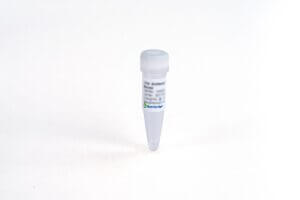
CA19-9 Antibody (9H9), mAb, Mouse
$24,813.26 Add to cart View Product DetailsCarbohydrate
antigen 19-9 (CA19-9) is the sialylated form of Lewis Antigen. It may be
elevated in many types of gastrointestinal cancer, such as colorectal cancer,
esophageal cancer and hepatocellular carcinoma. It is useful for diagnosis and monitoring of pancreatic cancer -

CA242 (1A6), mAb, Mouse
$287.21 Add to cart View Product DetailsCA242, known as carbohydrate antigen 242, is a sialyated carbohydrate antigen. It is a cancer-associated glycoprotein expressed in the sera of pancreatic cancer patients. CA242 is a useful biomarker for the diagnosis, prognosis, and surveillance of gastrointestinal malignancies.
-

CA242 (1A6), mAb, Mouse
$2,872.13 Add to cart View Product DetailsCA242, known as carbohydrate antigen 242, is a sialyated carbohydrate antigen. It is a cancer-associated glycoprotein expressed in the sera of pancreatic cancer patients. CA242 is a useful biomarker for the diagnosis, prognosis, and surveillance of gastrointestinal malignancies.
-

CA242 (1A6), mAb, Mouse
$24,408.75 Add to cart View Product DetailsCA242, known as carbohydrate antigen 242, is a sialyated carbohydrate antigen. It is a cancer-associated glycoprotein expressed in the sera of pancreatic cancer patients. CA242 is a useful biomarker for the diagnosis, prognosis, and surveillance of gastrointestinal malignancies.
-

CA242 (1E1HC)
$287.21 Add to cart View Product DetailsCA242, known as carbohydrate antigen 242, is a sialyated carbohydrate antigen. It is a cancer-associated glycoprotein expressed in the sera of pancreatic cancer patients. CA242 is a useful biomarker for the diagnosis, prognosis, and surveillance of gastrointestinal malignancies.
-

CA242 (1E1HC)
$2,872.13 Add to cart View Product DetailsCA242, known as carbohydrate antigen 242, is a sialyated carbohydrate antigen. It is a cancer-associated glycoprotein expressed in the sera of pancreatic cancer patients. CA242 is a useful biomarker for the diagnosis, prognosis, and surveillance of gastrointestinal malignancies.
-

CA242 (1E1HC)
$24,408.75 Add to cart View Product DetailsCA242, known as carbohydrate antigen 242, is a sialyated carbohydrate antigen. It is a cancer-associated glycoprotein expressed in the sera of pancreatic cancer patients. CA242 is a useful biomarker for the diagnosis, prognosis, and surveillance of gastrointestinal malignancies.
-

CA72-4 Antibody (44E45), mAb, Mouse
$292.39 Add to cart View Product DetailsCA72-4 (Cancer antigen 72-4), also known as Tumor associated glycoprotein (TAG) 72, is a mucin-like protein of high molecular weight (200- 400 kD). CA 72-4 has high specificity for diagnosis of benign diseases. It is also a helpful marker in the diagnosis of gastric cancer, ovarian carcinoma and colorectal carcinoma.
-

CA72-4 Antibody (44E45), mAb, Mouse
$2,923.88 Add to cart View Product DetailsCA72-4 (Cancer antigen 72-4), also known as Tumor associated glycoprotein (TAG) 72, is a mucin-like protein of high molecular weight (200- 400 kD). CA 72-4 has high specificity for diagnosis of benign diseases. It is also a helpful marker in the diagnosis of gastric cancer, ovarian carcinoma and colorectal carcinoma.
-

CA72-4 Antibody (44E45), mAb, Mouse
$24,852.94 Add to cart View Product DetailsCA72-4 (Cancer antigen 72-4), also known as Tumor associated glycoprotein (TAG) 72, is a mucin-like protein of high molecular weight (200- 400 kD). CA 72-4 has high specificity for diagnosis of benign diseases. It is also a helpful marker in the diagnosis of gastric cancer, ovarian carcinoma and colorectal carcinoma.
-

CA72-4 Antibody (44E48), mAb, Mouse
$287.21 Add to cart View Product DetailsCA72-4 (Cancer antigen 72-4), also known as Tumor associated glycoprotein (TAG) 72, is a mucin-like protein of high molecular weight (200- 400 kD). CA 72-4 has high specificity for diagnosis of benign diseases. It is also a helpful marker in the diagnosis of gastric cancer, ovarian carcinoma and colorectal carcinoma.
-

CA72-4 Antibody (44E48), mAb, Mouse
$2,872.13 Add to cart View Product DetailsCA72-4 (Cancer antigen 72-4), also known as Tumor associated glycoprotein (TAG) 72, is a mucin-like protein of high molecular weight (200- 400 kD). CA 72-4 has high specificity for diagnosis of benign diseases. It is also a helpful marker in the diagnosis of gastric cancer, ovarian carcinoma and colorectal carcinoma.
-

CA72-4 Antibody (44E48), mAb, Mouse
$24,408.75 Add to cart View Product DetailsCA72-4 (Cancer antigen 72-4), also known as Tumor associated glycoprotein (TAG) 72, is a mucin-like protein of high molecular weight (200- 400 kD). CA 72-4 has high specificity for diagnosis of benign diseases. It is also a helpful marker in the diagnosis of gastric cancer, ovarian carcinoma and colorectal carcinoma.
-

CA72-4 Antibody (D31), mAb, Mouse
$287.21 Add to cart View Product DetailsCA72-4 (Cancer antigen 72-4), also known as Tumor associated glycoprotein (TAG) 72, is a mucin-like protein of high molecular weight (200- 400 kD). CA 72-4 has high specificity for diagnosis of benign diseases. It is also a helpful marker in the diagnosis of gastric cancer, ovarian carcinoma and colorectal carcinoma.
-

CA72-4 Antibody (D31), mAb, Mouse
$2,872.13 Add to cart View Product DetailsCA72-4 (Cancer antigen 72-4), also known as Tumor associated glycoprotein (TAG) 72, is a mucin-like protein of high molecular weight (200- 400 kD). CA 72-4 has high specificity for diagnosis of benign diseases. It is also a helpful marker in the diagnosis of gastric cancer, ovarian carcinoma and colorectal carcinoma.
-

CA72-4 Antibody (D31), mAb, Mouse
$24,408.75 Add to cart View Product DetailsCA72-4 (Cancer antigen 72-4), also known as Tumor associated glycoprotein (TAG) 72, is a mucin-like protein of high molecular weight (200- 400 kD). CA 72-4 has high specificity for diagnosis of benign diseases. It is also a helpful marker in the diagnosis of gastric cancer, ovarian carcinoma and colorectal carcinoma.
-

Calcitonin (12C5), mAb, Mouse
$131.10 Add to cart View Product DetailsPCT, a 116 amino acid (aa) protein, is comprised of three sections including a 57 aa N-terminal PCT, a 32 aa calcitonin and a 21 aa katacalcin. Calcitonin is a hormone, derived from PCT cleavage. PCT is a good diagnosis marker for bacterial infection. Other diseases such as sepsis, inflammation, surgery, heat shock, burn injuries and cardiogenic shock can also cause an increase of PCT level in blood.
-

Calcitonin (12C5), mAb, Mouse
$1,311.00 Add to cart View Product DetailsPCT, a 116 amino acid (aa) protein, is comprised of three sections including a 57 aa N-terminal PCT, a 32 aa calcitonin and a 21 aa katacalcin. Calcitonin is a hormone, derived from PCT cleavage. PCT is a good diagnosis marker for bacterial infection. Other diseases such as sepsis, inflammation, surgery, heat shock, burn injuries and cardiogenic shock can also cause an increase of PCT level in blood.
